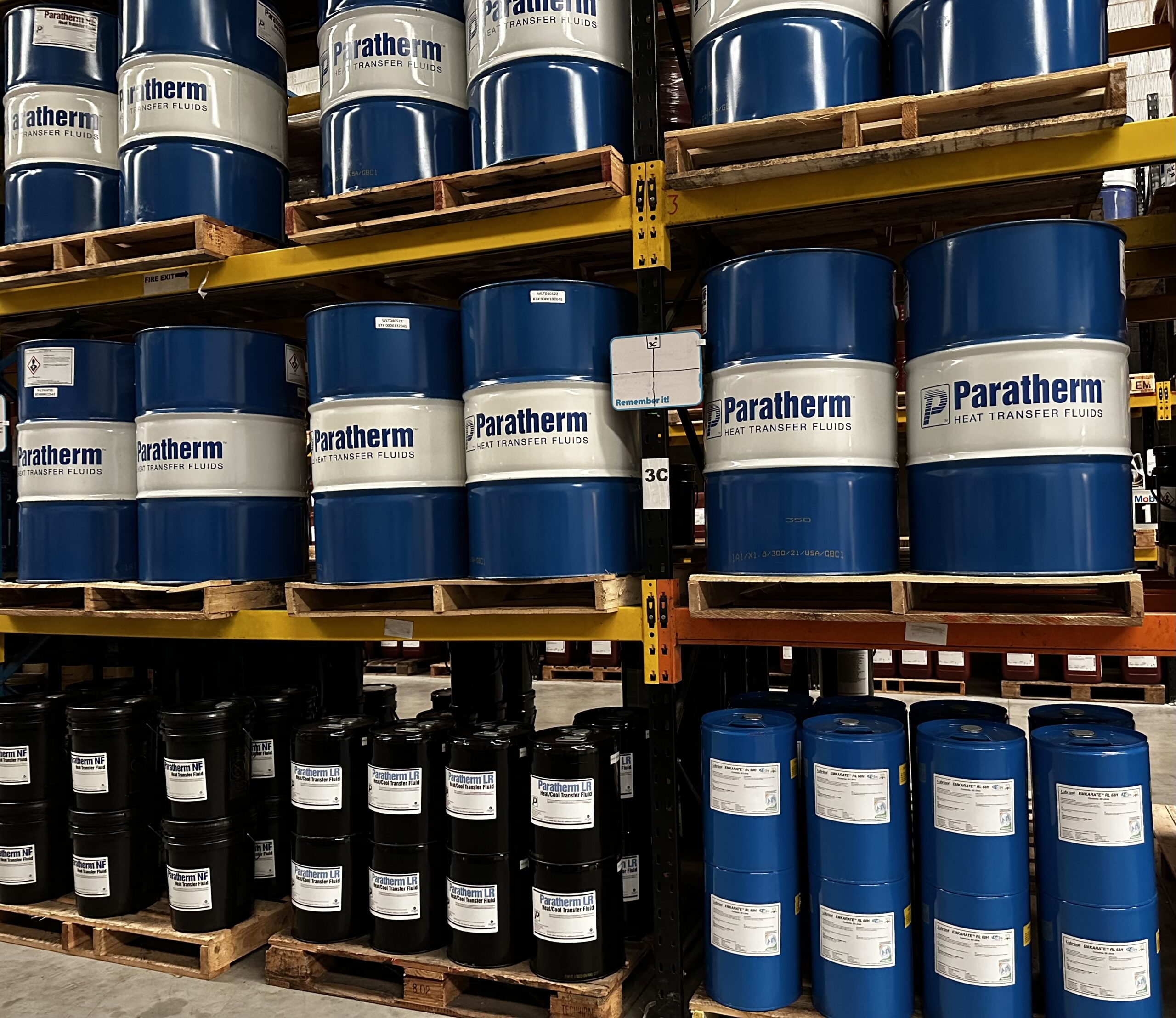How to Choose the very best Heat Transfer Fluid for Industrial Applications
How to Choose the very best Heat Transfer Fluid for Industrial Applications
Blog Article
Why Warmth Transfer Fluid Is Very Important for Optimizing Energy Transfer in Systems
The role of warm transfer fluids in optimizing energy transfer is pivotal for achieving effective thermal management throughout various industrial sectors. These fluids promote smooth warmth exchange, making sure processes run within optimum temperature level arrays and alleviating the risk of getting too hot.

Function in Thermal Management
Warm transfer fluids play an important duty in thermal management by efficiently regulating temperatures in different commercial procedures and systems. These specialized liquids facilitate the transfer of warm between various parts, ensuring optimum operating problems and avoiding overheating. By maintaining precise temperature control, heat transfer liquids allow industries such as chemical production, oil and gas, and power generation to operate safely and efficiently.
The option of an ideal warm transfer fluid depends upon several factors, including thermal security, warm capacity, and thickness. High thermal security makes certain that the liquid can endure extreme temperatures without degrading, while a high warm ability enables it to soak up and launch significant quantities of heat - heat transfer fluid. Low thickness lowers the power required for pumping, adding to total system efficiency
Furthermore, heat transfer liquids are integral in applications like refrigeration, where they help absorb and dissipate warmth throughout the cooling cycle. In solar thermal power systems, these liquids capture and transportation solar warm to produce power or supply warm water. Their versatility to diverse operating problems and ability to maintain constant thermal efficiency highlight their importance in commercial thermal administration, promoting operational continuity and enhancing precaution.

Enhancing System Efficiency
To take full advantage of the advantages of thermal monitoring, improving system efficiency via the calculated use of warm transfer liquids is paramount. These liquids play a crucial duty in enhancing energy transfer by facilitating regular thermal law, which consequently affects the general performance and longevity of systems. Efficient heat transfer results in decreased power losses, decreased functional prices, and enhanced reliability of tools. By maintaining optimum temperature degrees, heat transfer fluids aid guarantee that systems operate within their developed parameters, therefore protecting against getting too hot and lowering the danger of part failure.

Types of Heat Transfer Liquids
The variety of warmth transfer liquids highlights their vital role in an array of commercial applications, each customized to fulfill details thermal management needs. These liquids assist in effective power transfer and are chosen based upon key properties such as thermal security, viscosity, and heat ability. The primary types consist of water, glycol remedies, oils, and synthetics, each offering unique advantages.
Water is the most typical warm transfer medium because of its high specific heat ability and inexpensive. Nonetheless, its use is restricted by its freezing and steaming factors. Glycol mixes, typically made use of in HVAC systems, offer a lower freezing point, including convenience in various environments. Mineral oils are preferred for their thermal security and non-corrosive nature, making them appropriate for high-temperature applications.

These liquids make other sure premium performance in systems where conventional liquids might stop working. The option of a heat transfer liquid is critical, as it helpful resources influences system performance, safety and security, and long life.
Environmental and Economic Benefits
Utilizing the ideal heat transfer fluids offers substantial environmental and economic benefits for commercial procedures. By choosing fluids with remarkable thermal security and high warm ability, industries can improve power efficiency, causing lowered fuel intake and lower greenhouse gas exhausts. This adds to a smaller carbon impact and lines up with global sustainability objectives. Eco friendly heat transfer liquids, typically naturally degradable and non-toxic, minimize the danger of soil and water contamination in the event of leaks or spills, thereby shielding ecological communities and adhering to stringent ecological laws.
Economically, the appropriate warmth transfer liquid can significantly reduce functional expenses. Effective warmth transfer minimizes energy expenditure, leading to lower utility bills and enhanced productivity. Fluids with extended lifecycle efficiency reduce the regularity of substitutes and upkeep, lowering downtime and connected prices. Buying top notch liquids can also alleviate the threat of tools corrosion and failing, preventing expensive fixings and prolonging the lifespan of vital facilities. In open markets, these savings and performances offer an unique advantage, enabling companies to designate sources much more successfully and spend in further development. On the whole, the strategic use optimum heat transfer fluids sustains lasting financial growth and ecological stewardship.
Selecting the Right Fluid
How does one browse the intricate procedure of picking the best heat transfer liquid for industrial applications? Thermal security makes certain the fluid can stand up to high temperature levels without weakening, while compatibility stops rust or various other damaging responses with system components.
Additionally, the liquid's heat ability and get redirected here thickness are paramount. A high warmth ability permits the liquid to soak up and transfer more energy, boosting efficiency. Meanwhile, optimal thickness makes sure marginal pump work and effective warm transfer, specifically in differing temperature levels. Environmental and safety and security aspects need to likewise be part of the decision-making process. Non-toxic, eco-friendly fluids reduce environmental effect and follow governing standards, minimizing obligation risks.
Verdict
The strategic selection and application of heat transfer liquids are fundamental to maximizing energy transfer throughout different systems. By making certain high thermal security and capability, these liquids give exact temperature level control and enhance total system performance.
Report this page